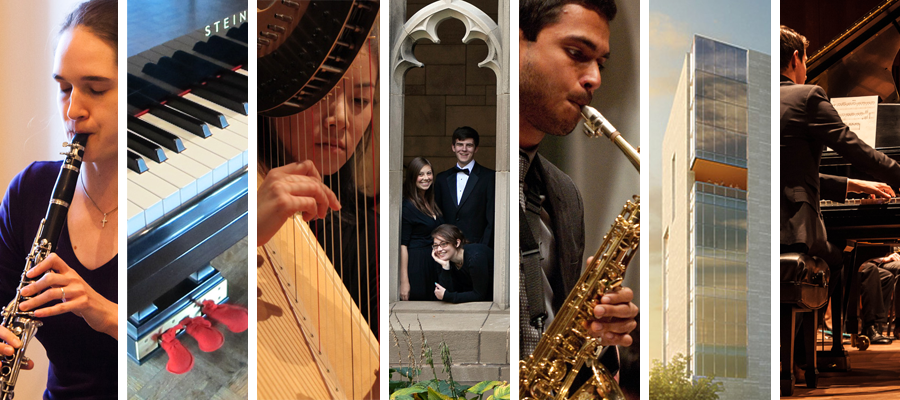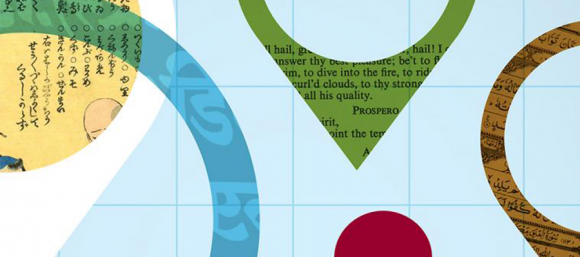Explore the relationship between hearing, seeing, and the imagination at the 35th Annual Humanities Day
When a teenage boy is castrated before the onset of puberty, his voice produces an extraordinarily unique sound with incredible range. Moreover, according to Martha Feldman, a Mabel Greene Myers Professor of Music and the Humanities in the College, these voices of castrated male singers from the sixteenth and nineteenth centuries are indeed lost, or at least, unappreciated. Professor Feldman will nevertheless discuss how to train the mind’s ear in order to rediscover the “unique timber” of the lost castrato voice purely through imagination in her talk, “How to Hear and Unheard Voice: Explorations in Improbable Hearing.” This unusual presentation about unheard sounds and registers will ultimately provide the necessary outlet for navigating the acoustic phenomenon of a castrato’s performance.
“How to Hear an Unheard Voice” is only one of the many music-oriented events at the 35th annual Humanities Day at the University of Chicago. “Let your mind wander” to further explore the imaginative processes of Robert Whalen, Director of the University Chamber Orchestra, in his talk, “Music, Heuristics, and Interpretation: A Conductor’s Search for Musical Meaning.” While the musical score demands that a conductor fully understand the complex progressions outlined by its composer, heuristics or the technique employed to problem-solve more efficiently, revolutionizes an otherwise mentally intense process. It may even seem counterintuitive that principles of data-intensive computing would bear resemblance to communicating effectively the emotional turns of a symphony or overture, but Whalen will explicate his process by means of an interactive presentation that will guide its audience on an interpretive journey.
And what is film without its musical score or even soundscape? Berthold Hoeckner, Associate Professor in the Department of Music and the College, will discuss how filmmakers employ these conducted musical scores to influence viewers of the silver screen in “Listening to Film.” However, this talk will tackle the more unusual examples in the world of film sound and film music. (These examples probably are less like Garden State and more like Eraserhead.) When even “silent” films feature corresponding live music for emotional clues, the incorporation of sound is certainly pivotal to the appreciation of the moving image. Professor Hoeckner will further elucidate this complex relationship between seeing and hearing, and just how specific sounds and flourishes can unconsciously influence our perception of the film reel.
Expanding upon this relationship, Howard Sandroff, Senior Lecturer in the Department of Music and the Director of the Computer Music Studio, will discuss his personal interest in arresting time and space in “The Obsessive Image.” While filmmakers may be interested in applying sound to aid the moving picture, Professor Sandroff is interested in the reverse relationship: applying “psychological and structural imagery” to the creation of immobile metal sculptures which provide a concrete image of his “obsession to freeze the time and motion of music.” Sandroff’s welded metal structure unconventionally aids his musical compositions, as he will demonstrate with three of his smaller sculptures and recordings in the presentation.
Although the Department of Music events are centrally located in your ear at this year’s Humanities Day, each talk nevertheless adventures beyond the aural to the visual and to the cerebral, ensuring a comprehensive exploration of the human senses. Humanities Day is Saturday, October 19th, and is free and open to the public. Register online for any of the talks listed above, plus more.
Below is the schedule of the specific Department of Music events.
Session 1: 9:30-10:30 AM
“The Obsessive Image,” Howard Sandroff (program info) Goodspeed Hall, Room 402
Session 2: 2:00-3:00 PM
“Music, Heuristics, and Interpretation: A Conductor’s Search for Musical Meaning,” Robert Whalen (program info) Fulton Recital Hall, Goodspeed Hall, 4th floor
Session 3: 3:30-4:30 PM
“How to Hear an Unheard Voice,” Martha Feldman (program info) Fulton Recital Hall, Goodspeed Hall, 4th floor
“Listening to Film,” Berthold Hoeckner (program info) Reva and David Logan Center for the Arts, Screening Room
by Kelly Felsberg, MAPH ’14

